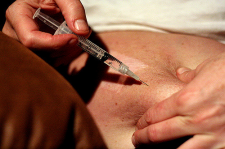Aggregated News

Justine Griffin was 25 when she submitted an application to donate her eggs to a fertility clinic in Florida, detailing everything about herself from her appearance to her SAT scores. An infertile couple liked what they saw on paper and Ms. Griffin was notified that they wanted to buy her eggs.
That was the easy part. For three weeks in 2013, Ms. Griffin underwent physical and psychological tests, injected herself with hormones to stimulate her egg production and then had five eggs harvested through a surgical procedure. She was paid $5,000 for her eggs. Ms. Griffin, then a reporter for The Sarasota Herald Tribune, chronicled the experience for the newspaper in a series called “The Cost of Life.”
While both men and women in their 20s may be tempted to sell or donate their genetic material to make money or simply for altruistic reasons, the decision is not merely a financial transaction. For both sexes there are ethical factors. But for a woman the stakes are higher because a decision to sell her eggs may pose both short- and long-term...



